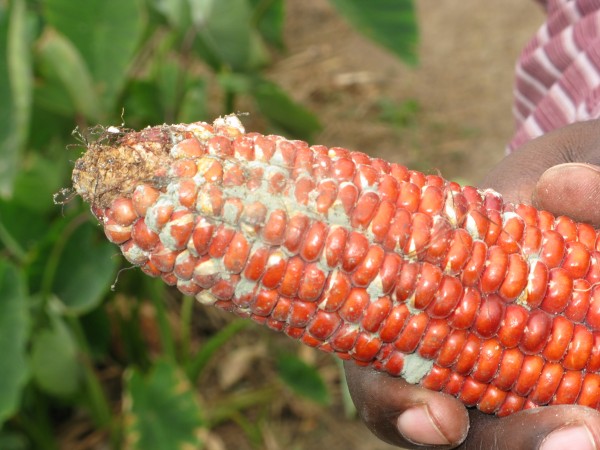The federal government says it will force down price of food commodities by using railway to transport it across the country.
The government had set up a committee to recommend ways through which the prices of food commodities would be slashed.
Speaking with journalists after the committee submitted its report to federal executive council on Wednesday, Audu Ogbeh, minister of agriculture, explained that the increase in the price of diesel made food prices go up.
He also said the government would release food from its reserve to further lower the price of food commodities.
Advertisement
“One of the things we found out is that the cost of transportation is becoming extremely high especially because most of our transportation is by road and diesel prices have gone up and trucks are finding it difficult to move from place to place at old prices,” Ogbeh said.
“So we considered the following alternatives; using railway wagons along the current railway network. As we did before when we moved cattle from north-west to Lagos, we brought down the cost and avoided the multiple taxation on transporters by local governments which delay movement.
“We have decided to work with the state governments and the police to reduce delays. We are going to adapt what they have in Ivory Coast. Trucks carrying foods are given labels. In fact, in Ivory Coast, they cannot be stopped for more than 10 minutes anywhere.
Advertisement
“Even if something serious has happened, the security agencies will follow them to their destinations and come back to investigate whatever has happened.
“Finally, we shall be looking into our reserves if in the next few days, the situation persist to see what we can bring out to lower the prices because another bumper harvest will be coming up again at the end of March.”
Also speaking, Okechukwu Enelamah, the minister trade and industry, said the federal government has approved a set of policies that would boost local production of food commodities.
He added that the government would also set up an inter-ministerial committee that would ensure that the polices were implemented in transparency.
Advertisement
“They also include the use of both tariff and non tariff measures to address the issues that Nigerians are most concerned about, which is the issue of dumping, issues around quality and the standards of what we consume,” he said.
“We also approved a set of measures that will boost local production in terms of financing seeds and all the other things. Let me say that the most important thing about these set of policies is that in our approach we are going to be working with the stakeholders to actually implement the polices.
“To boost local production we are interested in all the input factors that will boost production. On financing the Central Bank had been working with the tomato farmers already. I am confident that the measure taken will boost production.The minister of science and technology is working with us in terms of both the production methods and equipment.”
On his part, Babatunde Fashola, minister power, works and housing, said N589 million has been approved for consultancy services to access a Japanese loan to support electricity transmission in the country.
“The projects for which approval has been obtained from council cover areas like Arigbajo, Abeokuta, Olorunshogo, Ikeja West, Oshogbo, Ogijo, Ikorodu, Shagamu and part of Benin towards Edo state contiguous to Ondo state around Omotosho as well as Agbara and Badagry,” Fashola said.
Advertisement
“When completed and construction takes place, it will help us in the evacuation of power from the Olorunshogo Power Plant to supply industrial clusters in Ogun and part of Lagos state. The consultant service for the three is for about N589 million.”
Advertisement
1 comments







Some are really expensive. Now one can get some discount using TellDunkin survey.